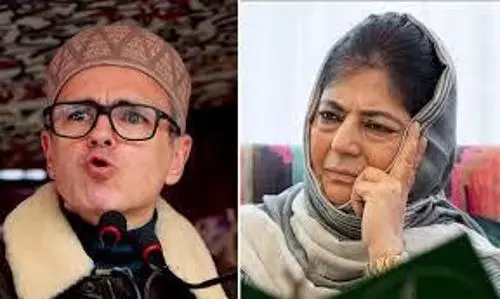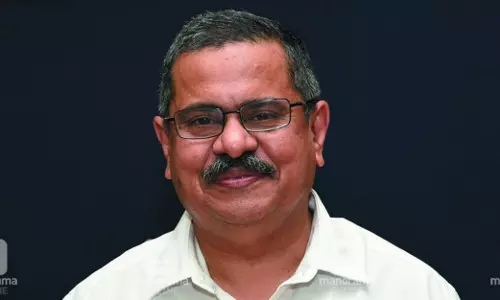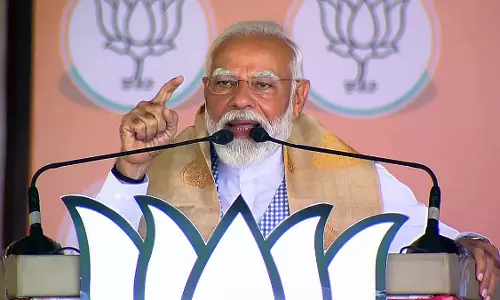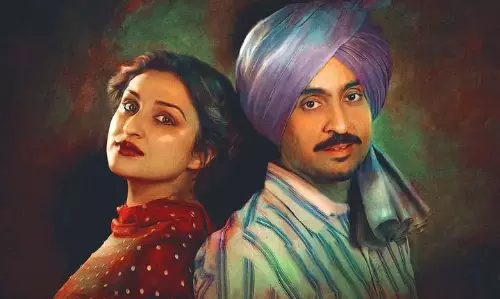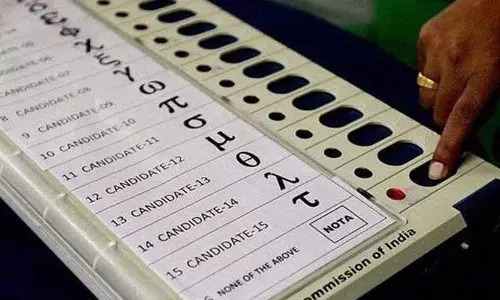
When Vajpyee bids adieu
text_fieldsAtal Bihari Vajpayee who was a three-time Prime Minister of India has passed away.
Vajpayee who stayed away from active politics even ten years ago, was in the grip of age-related illnesses for a long time. An eventful political life spanning eight decades has come to an end: our tributes. Vajpayee was the most powerful advocate of hardcore right wing which propagated the precept and practice of Hindutwa politics across the nation through the Indian Parliament and outside. He was in the forefront of public service as a full time worker of the RSS since post-independence. He maintained the image of a 'suave' personality in the mainstream even as he was an ardent promoter of the politics of hate and hostility. This 'soft-spokenness' has benefitted him throughout his later life. For once, this might be the reason which qualified him for the post of Prime Minister.
Even as Vajpayee advocated the ideologies of Vinayak Damodar Savarkar and M S Golwalkar, it must be the fact that he was a disciple of Deendayal Upadhyaya that might have made him worthy of this tag. While Upadhyaya polished and presented the Hindutwa ideology before the common people, Vajpayee deployed the same tactic years later in Parliamentary politics. In spite of holding an ideology to be isolated, that was how Bharatiya Jan Sangh, its original avatar, got a berth in Parliament. Vajpayee made his way to the Parliament in the 1957 elections. His writings and speeches mostly became a subject of discussion in Parliament. It was those speeches and writings which grew the Jana Sangh and later the BJP to make its way to power.
Vajpayee was a member of Parliament for four decades. During those times, he had been making action plans for an ideology, in a land fertile for Hindutwa due to historical reasons, to capture power. That found success. By the 90s, the BJP was able to come to power in a few states and later at the Centre. Despite the Emergency and Ayodhya being entirely different political complications, they were used as a stepping stone towards political infallibility by turning them into strong campaign tools. When he became Prime Minister backed by a clear majority, these activities gained speed. It was Vajpayee's first NDA government that kick-started the saffronisation which the Modi government is extensively implementing today in educational, cultural and research sectors. But even then he was described as the soft-spoken politician in the BJP. Even though the Vajpayee's name was heard alongside that of Advani and Uma Bharti in several situations in which the country's minority communities were in a state of insecurity including the Babri Masjid demolition case, the tag remained.
In foreign policy matters, especially in relations with Pakistan, relatively constructive interventions were made during Vajpayee's term. And his departure coincides with the 20th anniversary of the 'Lahore Declaration', one of the major strides in the history of India-Pak diplomacy. Although India signed several treaties with its neighbours including the Shimla Agreement, the Lahore Declaration was more than that as a comprehensive deal of hopes with many dimensions. The New Delhi-Lahore bus trip was only a symbol of that. It was when India challenged Pakistan within a few days of Vajpayee's taking office - by the nuclear test in Pokhran - and both countries were getting close to taking a path of confrontation, that he became prepared to shake hands with Nawaz Sharif – although all that stumbled on Kargil and the military coup of Pakistan and soon turned a mirage.
In spite of being in office for six consecutive years, it is doubtful whether he could take the country forward economically. The market policy of NDA came under fire from even RSS. Many in the cabinet got caught in corruption cases. Although the government faced the 2004 election with the advertising catch phrase 'India Shining' at a cost of crores of rupees, it had to yield before a determined secular India. Ever since then, Vajpayee made only rare appearances in mainstream politics. Even during his retreat, he did religiously bequeath to the second generation his beliefs whose seeds were sown in his mind from age 13. It is that generation which is ruling the country at present. The only difference between the two generations is that the same ideology, which was implemented with a bit of facial make-up two decades ago, has now broken through all cover up, showing its real colours. Thus Vajpayee bids farewell seeing with pleased eyes the march of Hindutva under the leadership of the second generation.




